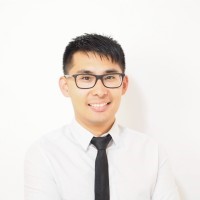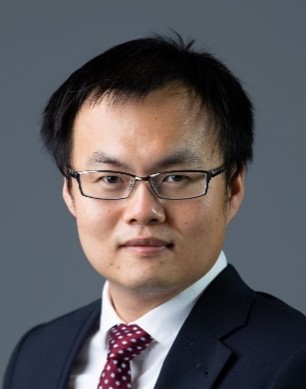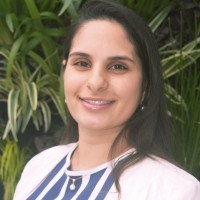Grid-forming Technologies Towards 100% Renewable Energy
2023 IEEE QLD Section PES/DEIS Super Session Series
1st Super Session: Grid-forming Technologies Towards 100% Renewable Energy
Speakers and topics:
Mr Wen-Cheng Huang from Tesla: Connecting Grid Forming Batteries in the NEM
Dr Wei Du from PNNL: Transient and Dynamic Modeling and Control of Grid-Forming Inverters–A Transition from Microgrids to Bulk Power Systems
Ms Natasha D’Silva from AEMO: Grid-Forming Inverters: A Voluntary Specification
Dr Sasan Zabihi from HITACHI ENERGY: Advanced Virtual Synchronous Machines- the most sophisticated form of Grid Forming mechanism are critical assets through achieving Net-zero power generation
Date and Time
Location
Hosts
Registration
-
 Add Event to Calendar
Add Event to Calendar
Loading virtual attendance info...
Speakers
 Wen-Cheng Huang of Tesla
Wen-Cheng Huang of Tesla
Connecting Grid Forming Batteries in the NEM
Biography:
Wen-Cheng Huang is the Power System Engineer at Tesla. Before he joined Tesla, he worked in ElectraNet and AEMO for around 10 years. With a keen understanding of the technical and regulatory requirements of generation connection, Wen-Cheng has played a pivotal role in assisting the Australian electricity network in achieving its renewable energy goals. As a staff engineer at Tesla, he has contributed to several high-profile projects, including the Hornsdale Power Reserve and the Victorian Big Battery. Through his work, he is committed to creating innovative solutions that enable a cleaner, more sustainable energy future.
 Wei Du of Pacific Northwest National Laboratory
Wei Du of Pacific Northwest National Laboratory
Transient and Dynamic Modeling and Control of Grid-Forming Inverters–A Transition from Microgrids to Bulk Power Systems
Biography:
Dr. Wei Du received the Ph.D. in Electrical Engineering from Tsinghua University, Beijing, China in 2014. His main areas of research are control design, modeling, and simulation of power systems with high penetration of power electronics devices. He is currently a staff research engineer at the Pacific Northwest National Laboratory, and serves as the Principal Investigator for several multi-million-dollar projects funded by U.S Department of Energy that focus on studying the impacts of high penetration of inverter-based resources on the transient and dynamic behaviors of power systems at different scales. He serves as the technical lead of the Modeling and Simulation Area of the Universal Interoperability for Grid-Forming Inverters (unifi) Consortium co-funded by U. S. Department of Energy solar and wind offices.
Prior to joining PNNL, he worked as a post-doctoral Research Associate at the University of Wisconsin-Madison from 2016 to 2018. He also worked as a Research Engineer at the key power system Real Time Digital Simulation (RTDS) lab of China Southern Power Grid Company from 2014 to 2016. He serves as an Associate Editor of IEEE Transactions on Smart Grid.
 Natasha D'Silva of AEMO
Natasha D'Silva of AEMO
Grid-Forming Inverters: A Voluntary Specification
Biography:
Natasha D'Silva is a Senior Engineer. She has worked in the energy industry for more than 10 years at OEMs and Retailers in Product and Bid Management roles before joining AEMO in the Future Energy Systems team. A member of the Australian Institute of Company Directors and currently volunteers with CIGRE Australia as the Next Generation Network (NGN) Co-chair, Australian Technical Committee Secretary, and as part of the CIGRE Women in Energy Australia Chapter.
 Sasan Zabihi of HITACHI ENERGY
Sasan Zabihi of HITACHI ENERGY
Advanced Virtual Synchronous Machines, as the most sophisticated form of Grid Forming mechanism are critical assets thro
Biography:
Sasan Zabihi (S’09 M’11 SM’20) is a Principal Power Systems Scientist at HITACHI ENERGY. Sasan received his Ph.D. degree in Power Electronics control and applications from QUT, Australia in 2011. He then served as a lecturer at QUT up to 2012.
Prior to joining QUT in 2008, he was a senior development engineer with multiple energy research institutes, with a focus on control and topology design for power conversion and custom power devices.
Since 2013, he has been an R&D specialist with ABB Australia (now HITACHI ENERGY), in their global CoC for Microgrid, and Distributed Generation, developing power convertors, and associated control architecture for Microgrids, Energy Storage and Renewable applications, and facilitating their integration into Power Systems. His focus lately has been shifted to addressing transient stability and system strength challenges ahead of future Grids with ever-increasing penetration of renewables. He is an active member of several CIGRE working groups and IEEE task forces. Dr Zabihi is currently an Adjunct Associate Professor at Monash University.

